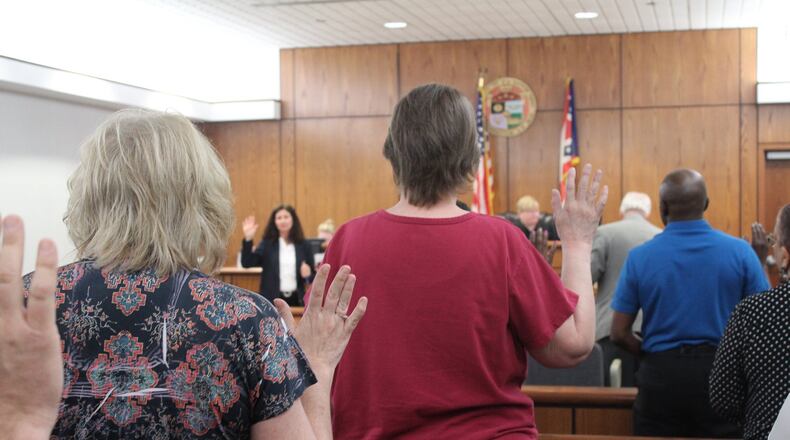The changes are intended to help curb evictions, and officials say they are the result of the work and recommendations of an eviction task force the mayor put together in 2019.
“Black or white, rich or poor, west side or east side – everyone in Dayton deserves safe and stable housing,” said Dayton Mayor Nan Whaley. “Dayton was facing an eviction crisis before COVID-19, and we know that it is likely to be deepened by the economic fallout of the pandemic.”
MORE: Evictions on hold in Dayton. But ‘surge’ is coming.
The new legislation, approved by city commissioners this month, caps the fees landlords in the city can charge on late rent payments at 5% of monthly rent, up to a $25 limit.
Landlords can’t charge interest on late fees or charge multiple late fees for one missed rent payment.
The city also said eviction task force members identified a common source of problems that contribute to evictions, which is that many low-income tenants don’t have bank accounts or electronic payment methods.
This meant that tenants who pay in cash or money order have struggled to prove their rent was paid.
The new city legislation shifts the burden of proof in court to landlords to prove that rent was not paid, if they did not provide a receipt to their tenants.
MORE: Dayton among cities with highest eviction rates: Portman, others want to know cause
Even before the coronavirus pandemic, evictions were too common in Dayton, considering the city’s eviction rate was almost twice the national average, said Debra Lavey, a member of the task force and a senior attorney with Advocates for Basic Legal Equality.
Ohio’s unemployment rate has surged, as many businesses closed and workers were laid off due to COVID-19, and the hardest hit by this pandemic are low-income renters, who have little savings and whose housing costs consume much of their paychecks, she said.
Late fees make it harder for tenants to catch up on their rent and remain in place, Lavey said.
“The city’s new late fee ordinance is a good step forward in reducing the rent burden on tenants,” she said.
Reasonable late fees will help, but the community also needs broad-based rental assistance, funding for legal representation for tenants and mediation programs, and legal changes that require landlords to accept late rental payments, she said.
Whaley said she expects the task force to provide additional recommendations about helpful changes in city and state policy in the near future.
About the Author

